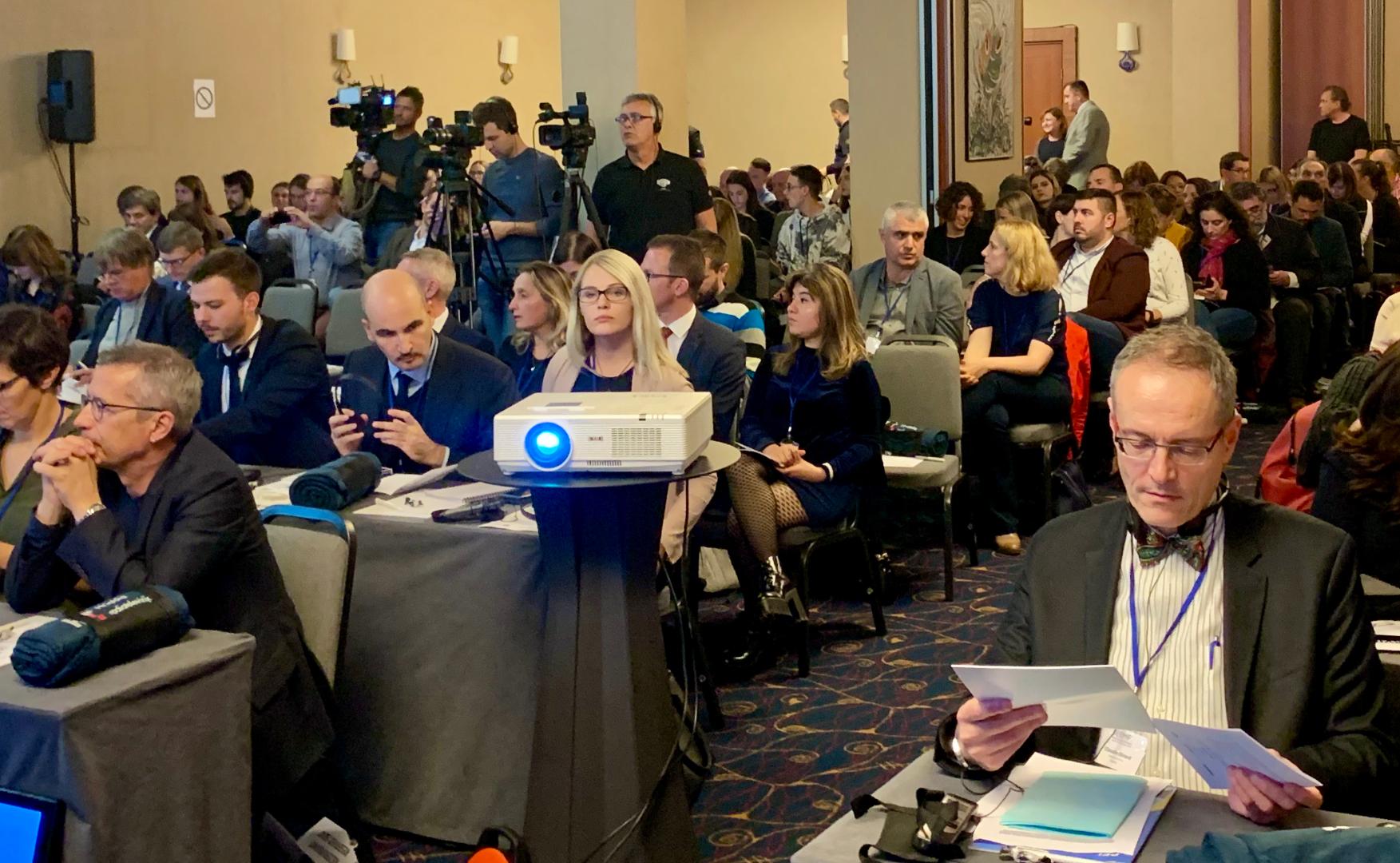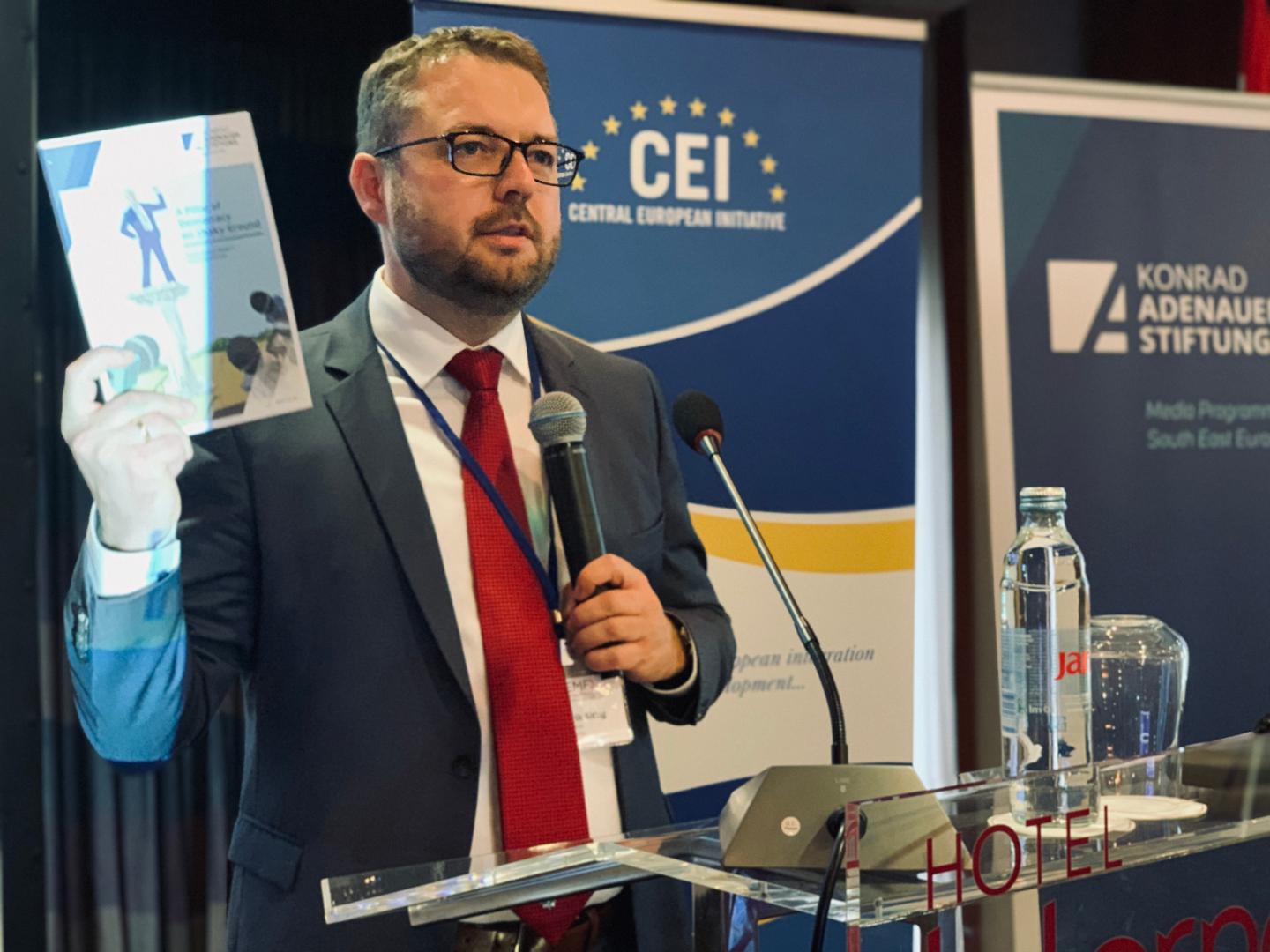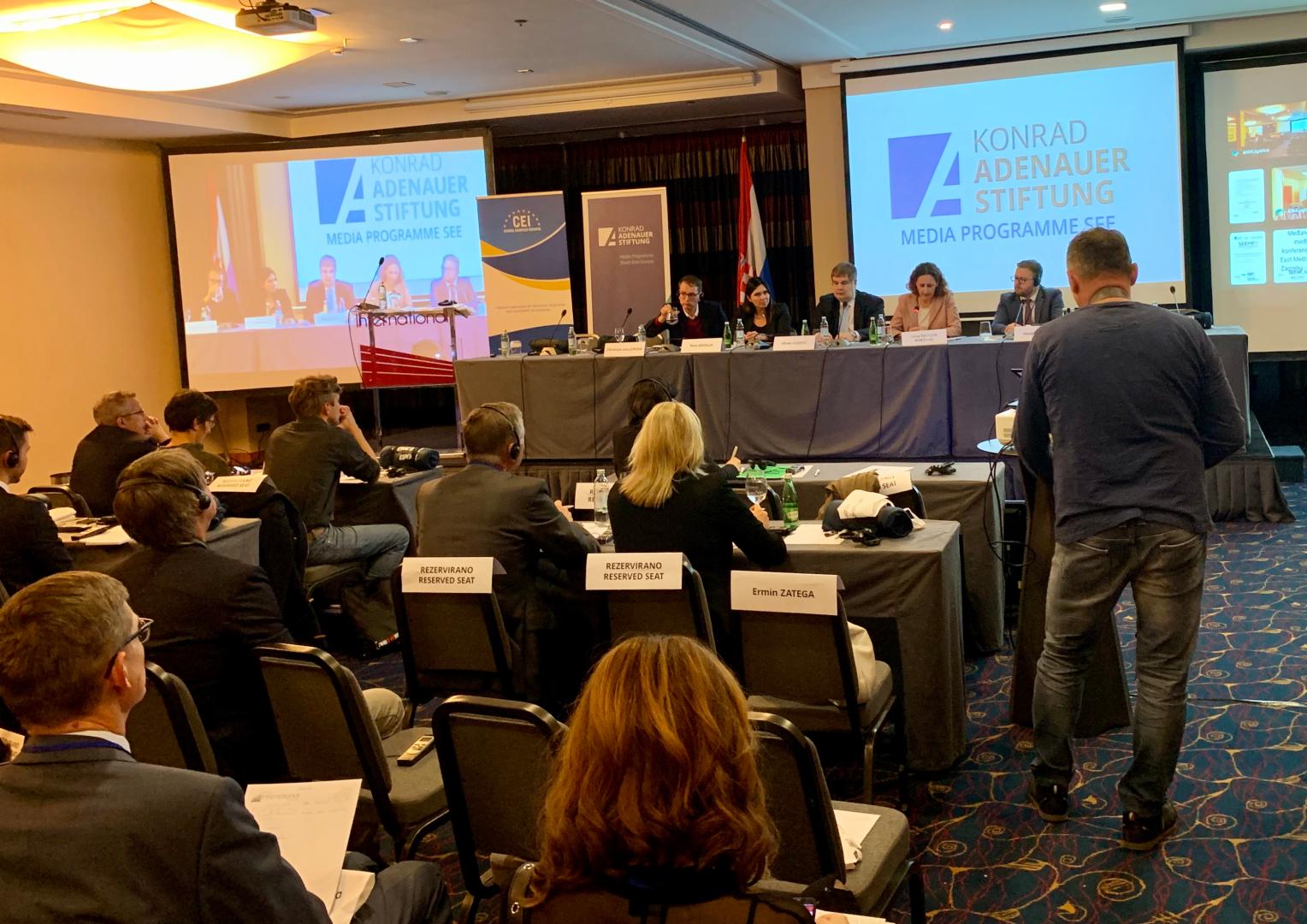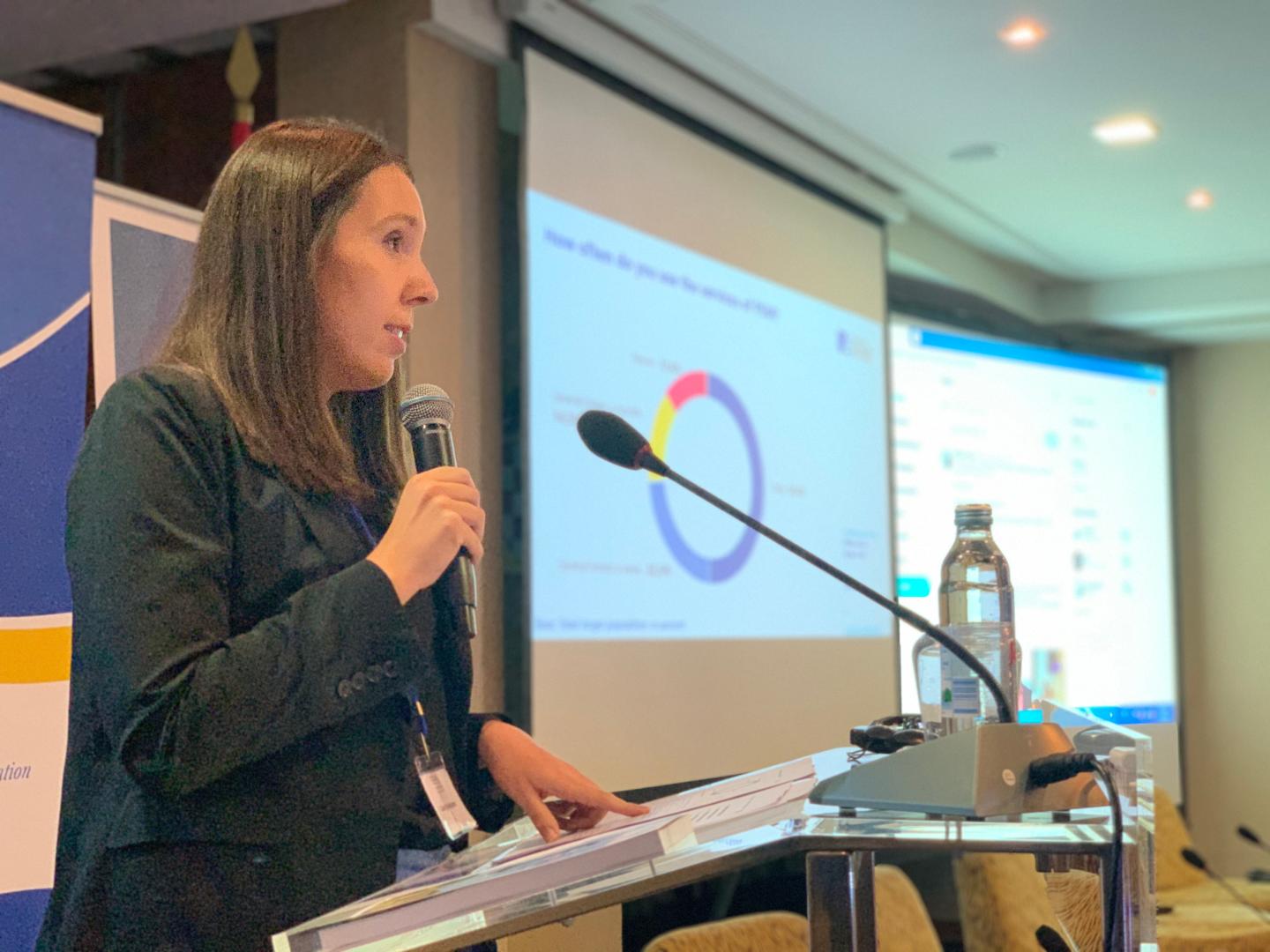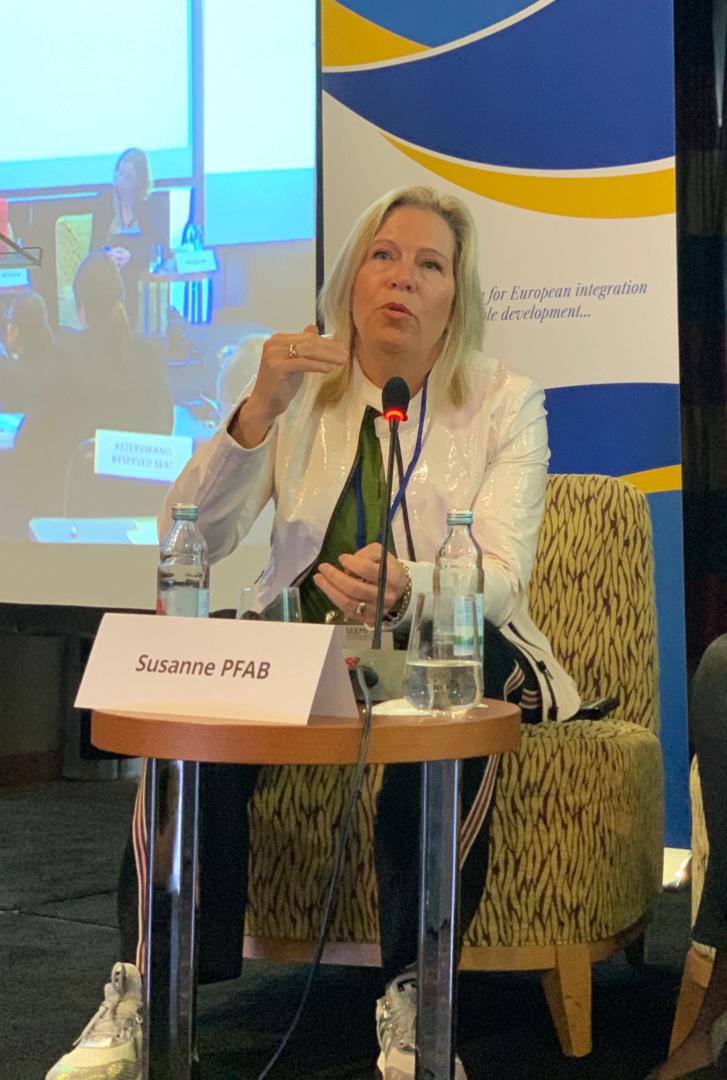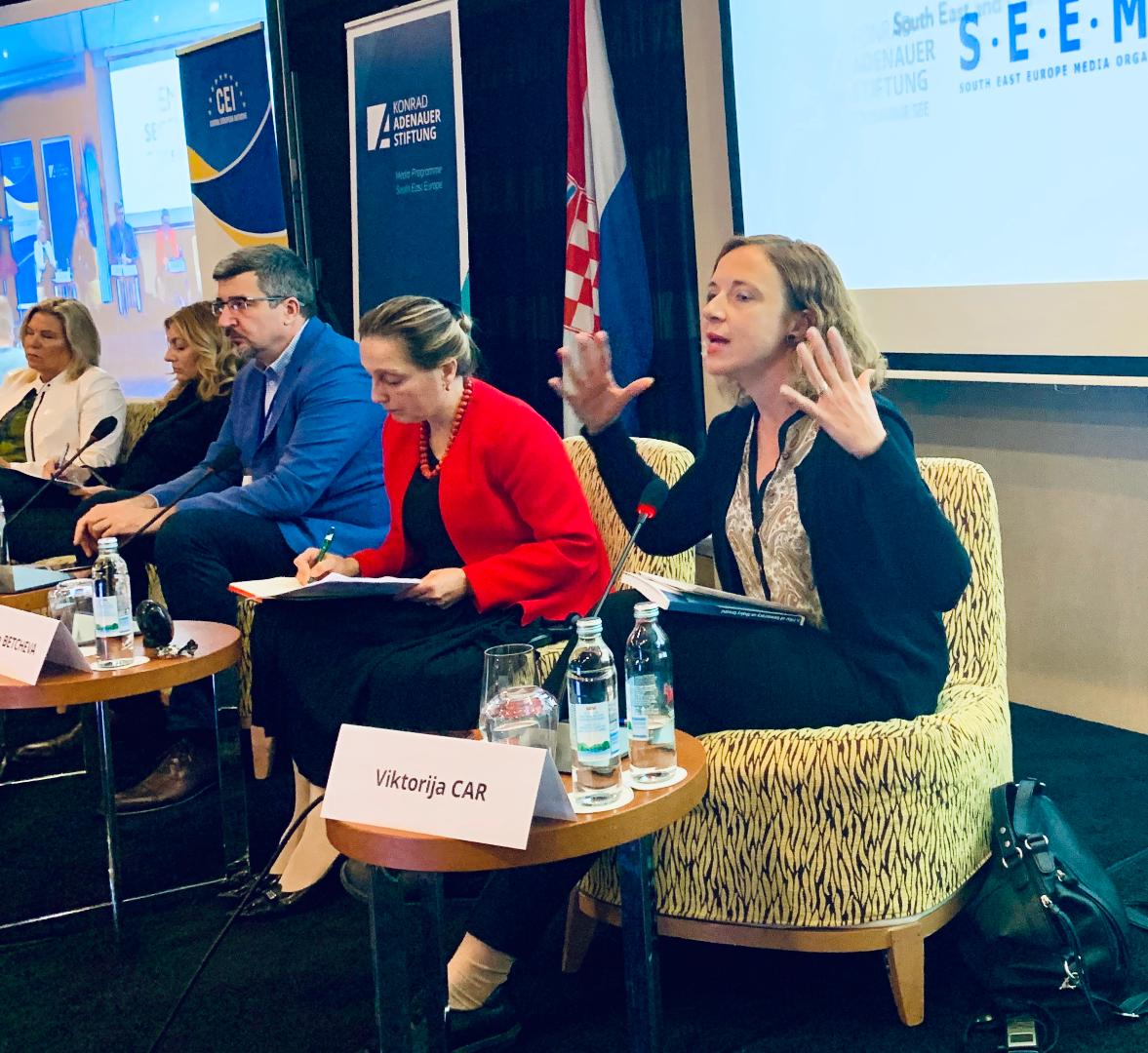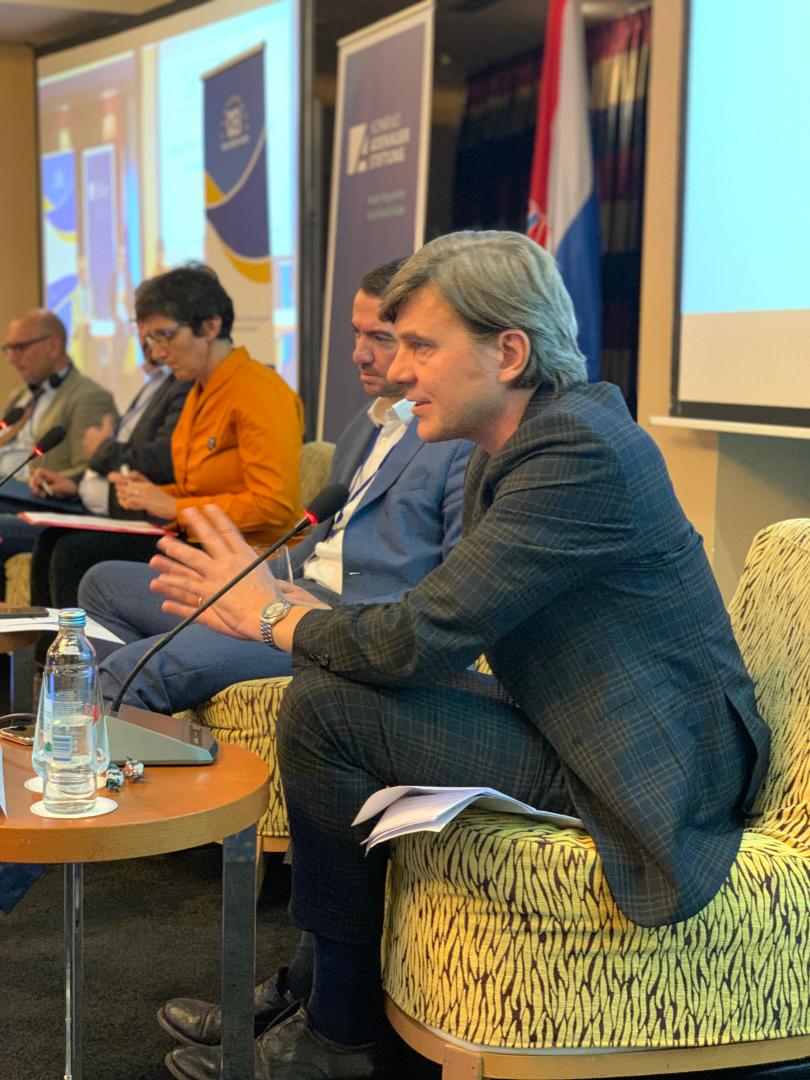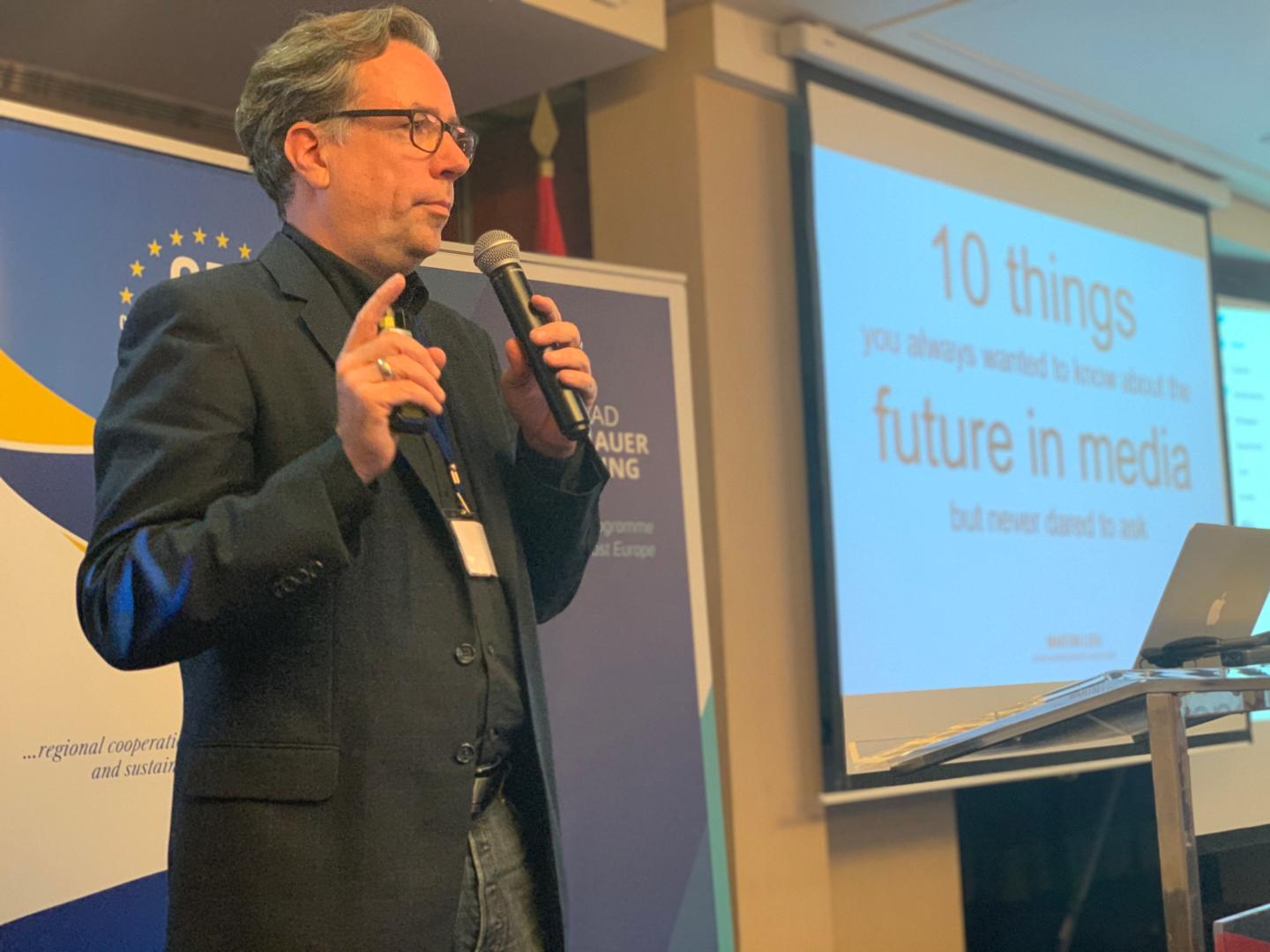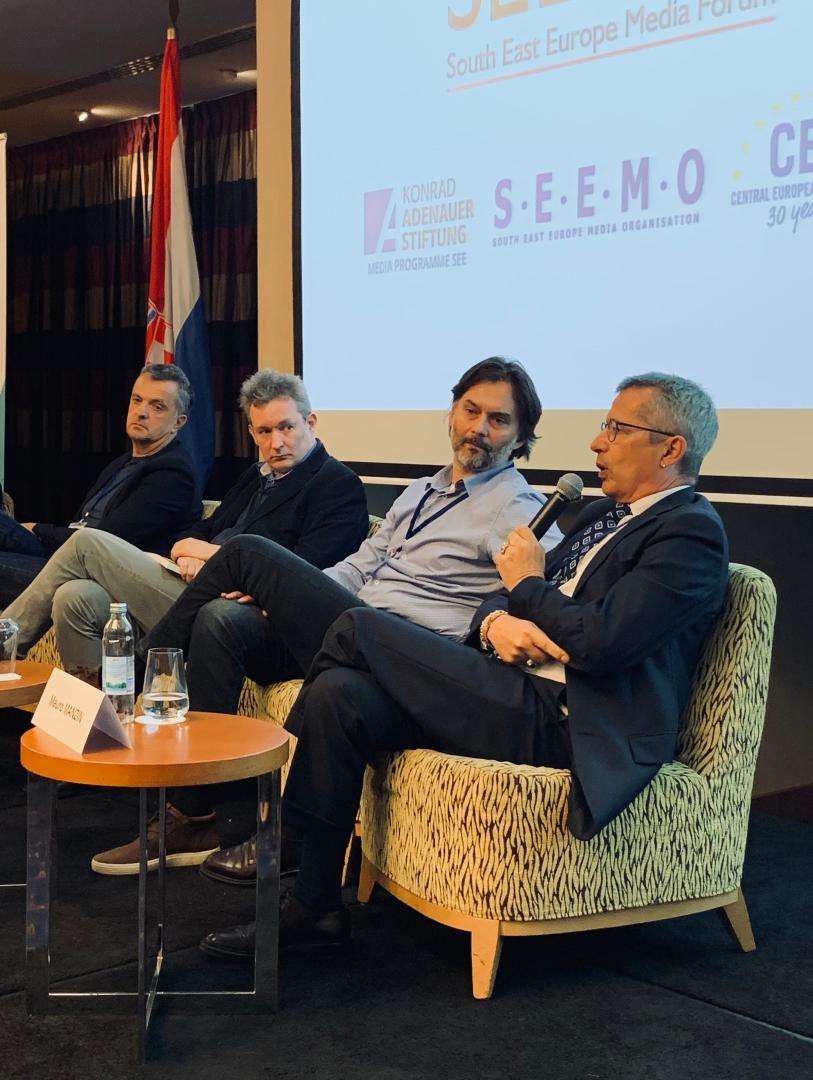Political and financial independence of public service media, multimedia content in traditional media, challenges of the digital era and the future of print media were the topics of the XIII. South East Europe Media Forum (SEEMF) on the 4th and 5th November in Zagreb. The most established media conference in South East Europe brought about 250 journalists, publishers, politicians and NGO representatives as well as some directors general of public service media to Croatia. The KAS Media Programme South East Europe hosts this media forum every year together with the South East European Media Organisa-tion (SEEMO) and the Central European Initiative (CEI).
This year‘s SEEMF with the topic “The Future of Public Broadcasting and Print Media in South East Europe: Financing, Independency, New Busi-ness Models” was opened by Oliver Vujović, SEEMO Secretary General, Nina Kodelja, Deputy CEI Secretary General, and Hendrik Sittig, Head of the KAS Media Programme South East Europe. “A democracy cannot exist without free media. Journalists must be able to work independently – without political or economic influence or any other reprisals. In this system public service media play an important role,“ said Sittig. Some in-troductory words to the journalists in the audience were also been given by Christian Halvorsen, Deputy Head of Mission of the Norwegian Embassy in Zagreb: “Never lose sight of your task and keep your credibility and integrity.”
The Croatian government was represented at the conference by the Minister of Culture Nina Obuljen Koržinek who said: “One of the biggest challenges is the decreasing professionalism in the whole media landscape.” Thus she underlined that the Croatian EU Council presidency in the first half of 2020 will have as priorities the strengthening of media in the digital world, espe-cially of the Croatian public service broadcaster (HRT).
Traditionally a discussion on media and politics in the host country, moderated by Oliver Vujović, followed. The public broadcaster HRT was also here a central subject of the discussion. “The current government does not like journalists, we only bother them. But we have to fight for our own freedom,” said Ilko Ćimić from the online platform Index.hr. „We expect from the government not to bribe us, not to arrest us, not to sue us and not to destroy us economically.” According to him, HRT is “a disgrace for whole Croatia.” Other panellists agreed. Also Zrinka Vrabec Mojzeš from the weekly Nacional, for her the situation at the HRT is very bad and she points out that „we are moving with big steps to 1990s.” Vesna Karuza Podgorelec, Project Manager for the Strategic Development at the HRT, confirmed that there is pressure. Yet public service media are needed.
The President of the Croatian Journalist Association Hrvoje Zovko talked, apart from the situation at the HRT where he is suspended, about the general situation for journalists. Croatia is the single EU country where journalists can be sued for telling the truth. The criminal law on shaming and defamation enables this. The complicated media situation and the tense relationship with politics do not hinder journalists to keep fighting for in-dependence. This was confirmed by Sandra Križanec from the TV channel N1. She added that more solidarity among journalists is needed.
The discussions on public service media continued on the second day. The basis for the debates was the presentation of the new KAS book “A Pil-lar of Democracy on Shaky Ground – Public Service Media in South East Europe” which for the first time gives a complete overview of public ser-vice media in the region. Next to individual country chapters in the book there is a recent representative opinion poll which was presented by Darija Fabijanić from the KAS Media Programme South East Europe. For more than two-thirds of media users public service media are important for a democratic society. In the same time, almost 65 percent see the public broadcasters under political influence. Jean Philip de Tender, Media Director at the European Broadcasting Un-ion (EBU), emphasised in his keynote speech that trust of the audience is important to be gained and be maintained.
More in the event report
Topics
On the Self-inflicted Causes of the Crisis in Journalism
The fire disaster in Kočani: Shock for state and society in North Macedonia
Why an independent Digital Ministry is indispensable and how it could be structured
Renewal of political parties - Digitalisation and political parties
Which News Can Still Be Trusted?



